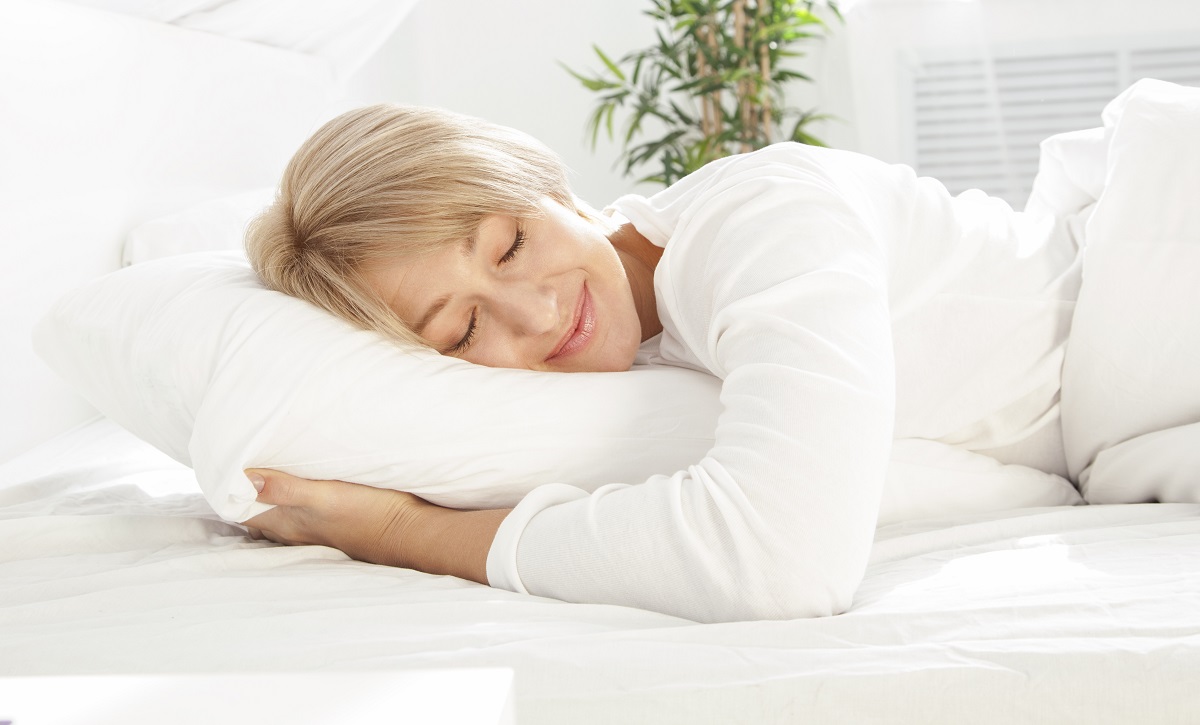Blog - Sleep Better at Night with These 5 Plants

You know that friend of yours who can fall asleep anywhere?
While some people are blessed with the gift of sleeping like a log no matter what, most of us struggle to fall asleep on occasion—whether the difficulty is caused by the weather, the moon, or stress at work.
One of the best things you can do for insomnia is to have a nighttime routine that you follow religiously.
Set one of these five plants by your bedside and not only will you have a new step in your routine (water, inspect, or smell the plant), but you’ll also receive health benefits scientifically proven to help you fall asleep.
Lavender
Lavender is one of the most calming plants on the planet. A common remedy for stress and insomnia, the scent of natural lavender has been shown to slow the nervous system’s activity, improve the quality of sleep, and also lift people’s moods. The plant reduces agitation and restlessness.
No wonder it’s so often found in lotions and bath products!
Lavender planted in a container and set in your bedroom will not only give off a calming fragrance but will look pretty to boot. Pinch or crush a flower before smelling to release the most amount of fragrance.
Spider plant
The most effective of all house plants for air purification, spider plants improve sleep by cleaning out the air we breathe.
Ionic air purifiers are known to combat insomnia by ridding the air of toxins, smoke, smog, and dust mites, thus helping us feel and breathe better. While a plant may not be as powerful as a pricey machine that you plug in to the wall, it works in a similar way.
In fact, in the 80s, NASA tested a crop of spider plants in sealed Plexiglas chambers and found that the plants were able to remove 95% percent of the toxins present (mostly formaldehyde) within 24 hours. The spider plants performed better than any other house plant tested.
Jasmine
Jasmine is such a beautiful plant, why wouldn’t you want it in your bedroom? The scent…the sight…this plant is a dream come true.
Not only is its scent alluring but relaxing as well. When participants of one study were exposed to the smell of jasmine, they experienced more restful sleep at night and increased cognitive performance the next day.
Interestingly, this study found that the scent of jasmine was actually more effective than lavender in positively impacting sleep.
Aloe vera
A NASA-approved house plant for air purification, aloe vera is best known for its ability to soothe the skin. Its gelatinous gel is often applied topically following a sunburn or is consumed to promote healthy digestion.
So what could it possibly do for sleep?
Aloe vera clears the air of toxic chemicals formaldehyde and benzene which are commonly found in home cleaners, paints, and other products. Cleaner air means more restful sleep.
Valerian
Valerian root can be ingested in tea or capsule form as a natural, supposedly non-habit forming sleep aid. While it is perfectly safe to eat or drink in the right quantities (and can easily be found in health food stores), you might not have to eat it to get the benefit of easy sleep.
The scent of valerian has been proven to make rats fall asleep faster, but no studies have yet been done on humans, so you’ll just have to give it a whiff and try for yourself!
Whether calming, purifying or sleep-inducing, the right plants can serve as more than natural décor in your bedroom. Hopefully, these plants can also help contribute to many nights of restful sleep.
No Description
Leave a Comment
You must be logged in to post a comment.